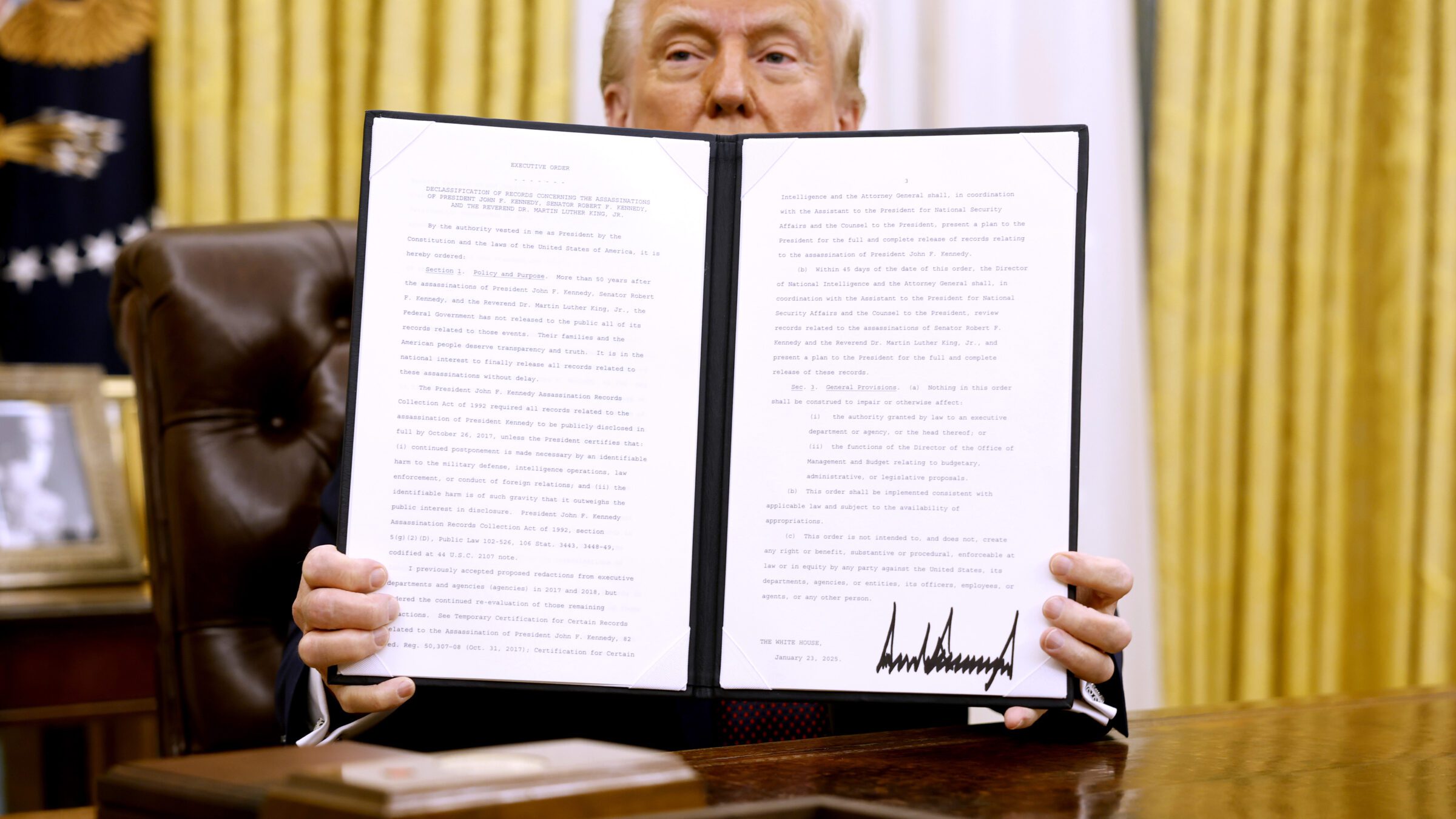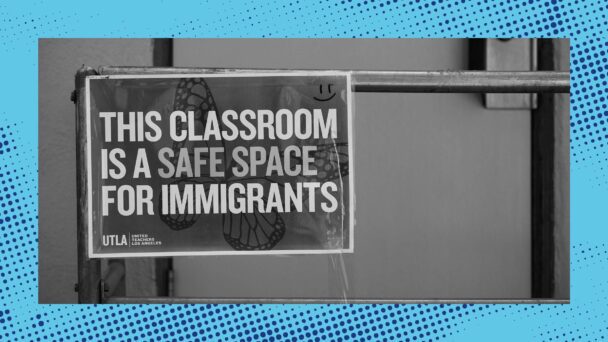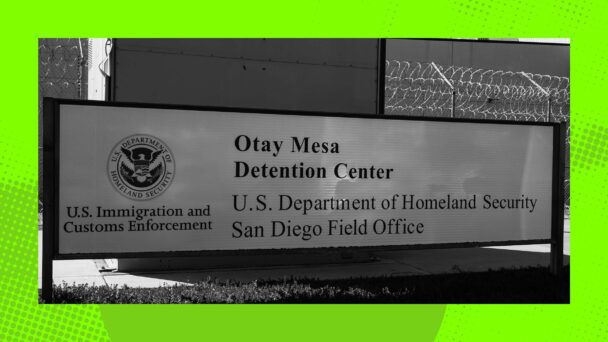Shortly after taking the oath of office on Monday, President Donald Trump issued an executive order that purports to end birthright citizenship—this country’s 157-year-old tradition of conferring American citizenship on people born in America, regardless of their race or ethnicity—with the stroke of a pen. If the Trump administration gets its way, going forward, only the U.S.-born children of two lawful permanent residents would get to enjoy the privileges of citizenship. Everyone else would be on their own, subject at any time to arrest and deportation to a “home” country that is as foreign to them as any other.
A coalition of 22 Democratic-led states promptly filed multiple lawsuits, calling the order a “flagrantly unlawful attempt to strip hundreds of thousands American-born children of their citizenship.” But the attack on birthright citizenship did not come out of thin air; it is the product of years, even decades, of hard work from far-right academics and activist judges who have been preparing for this moment, one incoherent law review article at a time. Long though the shot may still be, now that a Republican president is willing to make the case to a Republican Supreme Court supermajority with little demonstrated interest in telling the Republican president no, the conservative legal movement is finally taking it.
On Thursday, the Justice Department tried for the first time to persuade a judge that this racist stunt passes legal muster, and that the paper on which it is printed should not be immediately shredded to insulate the drafty attics of flipped houses with no chance of passing inspection. This did not go well for the Trump administration. The substantive section of its brief—which, again, argues that Trump alone has the unilateral authority to dispense with a century of unbroken precedent—spans only three pages, and as a legal argument, I would characterize it as ambitious in the same way that Shackleton trying to cross Antarctica in the winter of 1915 was ambitious. Already, the judge in one of the challenges has blocked Trump’s order from taking effect, but only after more or less urging the Justice Department lawyers in his courtroom to resign, retire, and move to a cabin in the woods to live out their days in shame.
“I’ve been on the bench for over four decades, and I can’t remember another case where the question presented is as clear as this,” said Judge John Cougheneour, a Reagan appointee to a federal district court in Washington state. “Frankly, I have difficulty understanding how a member of the bar would state unequivocally that this is a constitutional order. It just boggles my mind.”

(Photo by Anna Moneymaker/Getty Images)
Birthright citizenship comes from the text of the Fourteenth Amendment, which Congress adopted after the Civil War to confer citizenship on “all persons born or naturalized in the United States, and subject to the jurisdiction thereof.” The Court has long held that that “subject to the jurisdiction thereof” language is a narrow carve-out that primarily excludes the children of foreign diplomats, who are not subject to U.S. laws. There is pretty good evidence that the Fourteenth Amendment’s drafters affirmatively intended to include the children of immigrants within their definition of citizenship, which for the first time in the country’s history had clear, federally-established parameters that were not based primarily on one’s privilege, one’s whiteness, or some combination thereof.
The leading Supreme Court case here is United States v. Wong Kim Ark, which in 1898 affirmed that the children born to parents who live in the United States are indeed United States citizens, their parents’ citizenship notwithstanding. “The Amendment, in clear words and in manifest intent, includes the children born, within the territory of the United States, of all other persons, of whatever race or color, domiciled within the United States,” wrote Justice Horace Gray for the majority. To conclude otherwise, he continued, would “deny citizenship to thousands of persons of English, Scotch, Irish, German, or other European parentage who have always been considered and treated as citizens.”
The justices have never retreated from this position. In 1982, the Court in Plyler v. Doe struck down a Texas state law that barred undocumented children from attending public schools. Writing for the majority, Justice William Brennan explained that the Fourteenth Amendment’s jurisdictional qualifiers mean that its protections extend to “anyone, citizen or stranger, who is subject to the laws of a State”—and, he continued, apply regardless of the circumstances of a person’s “initial entry.” In other words, aside from a narrow diplomacy-related asterisk, the details of one’s immigration status do not invalidate the Fourteenth Amendment’s unambiguous promise of birthright citizenship.
To try and get around this mountain of inconvenient precedent, the Justice Department lawyers try two different tacks. First, they refer to the writings of two Supreme Court justices, Joseph Story and Samuel Miller, for the proposition that the children of immigrants who are not citizens are “subject to foreign powers,” and thus not “subject to the jurisdiction of the United States.” In the 1834 treatise Commentaries on the Conflict of Laws, Story argued that the birthright citizenship rule “should not apply to the children of parents who were in itinere in the country, or who were abiding there for temporary purposes, as for health, or occasional business.” Five decades later, in his 1891 treatise Lectures on Constitutional Law, Miller opined that if a foreign visitor “has a child born here which goes out of the country with its father,” that child is “not a citizen of the United States, because it was not subject to its jurisdiction.”
Astute readers will note several problems with this approach. First, both passages predate the Court’s opinion in Wong Kim Ark, and Story’s predates the Civil War by three decades. Second, even the Justice Department’s selective quotations ignore qualifiers that are very relevant in the real-world context of Trump’s burning desire to round up and deport undocumented people and their children. Immigrants, whether documented or not, who work, live, pay taxes, raise families, and build lives in the United States, for example, are not here “for temporary purposes,” in Story’s words. Miller’s assertion is about the children of visitors who left the country with their parents shortly after their birth, which, again, are not the current targets of Trump’s xenophobic cruelty.
Finally, these excerpts are—I can’t stress this enough—not Supreme Court precedent. They are the personal musings of two justices, neither of whom voted in Wong Kim Ark, and one of whom died twenty years before the Civil War ended. Story’s and Miller’s thoughts on the matter have as much weight as a Neil Gorsuch blog post in National Review, and are the sorts of things that lawyers only cite as persuasive authority when they know they are full of shit.

John Eastman in 2021 (Photo by Andy Cross/MediaNews Group/The Denver Post via Getty Images)
From there, the Justice Department turns to attacking Wong Kim Ark itself. How? By dismissing it—the case that everyone in the profession understands makes them 100 percent wrong—as “broadly worded dicta,” which is legalese for “Your Honor, actually, it doesn’t count.” There is a saying among lawyers that when the law is not on your side, you should argue the facts; when the facts are not on your side, you should argue the law; and when neither the law nor the facts are on your side, you should pound the table and yell like hell. To extend the aphorism a bit, the Trump administration lawyers who sat at the table in this case simply chose to vomit all over it.
Vapid and lazy though these arguments may be, conservative legal movement luminaries have been crafting them for a long time. John Eastman, a Claremont Institute gremlin best known as the architect of Trump’s attempt to overturn the 2020 election, argued in 2011 that Wong Kim Ark does not apply to the children of undocumented people because the petitioner’s parents in that case were lawful permanent residents—a distinction that neither the Wong Kim Ark Court nor any Court since recognized as material. (You may also remember Eastman as the author of a 2020 Newsweek op-ed that questioned the citizenship of then-Senator Kamala Harris, whose parents were legal immigrants but not U.S. citizens when she was born in Oakland in 1964. After publication, Newsweek had to apologize for publishing a “tool to perpetuate racism and xenophobia” and fueling the “racist lie of Birtherism.”)
More recently, James Ho, a Trump appointee to the Fifth Circuit Court of Appeals, argued in an interview with a conservative blogger that birthright citizenship “obviously doesn’t apply in case of war or invasion,” and that the “children of invading aliens” are thus not entitled to it. Why the qualifiers? Because back in 2006, Ho published a paper arguing that under an originalist understanding of the Fourteenth Amendment, birthright citizenship extends to everyone born in the United States. Now that Trump is back in the White House, though, Ho has to find a way to weasel out of his position, and the availability of the argument that undocumented people are an “invading force” is as useful to his career as it is morally repugnant.
As is true about everyone in the conservative legal movement, Ho’s reverence for the magisterial rule of law lasted until the moment Donald Trump said something different, at which point he obediently said all the words Trump wanted to hear and trusted that the message would reach its intended audience.
Like most lawyers who are not openly auditioning for a Supreme Court seat, I do not think Trump’s birthright citizenship executive order—at least, in its current form—will survive in court. (If anything, striking down something this unconstitutional is the sort of chance to demonstrate judicial objectivity that a Republican like Chief Justice John Roberts craves.) But the reason that honest-to-God lawyers were not embarrassed to put their names on this brief is that the Trump administration understands that in a federal judiciary dominated by conservatives, their thinnest, stupidest legal arguments stand a better chance than ever of carrying the day. The law is whatever you can get a majority to say it is. It never hurts to ask.







